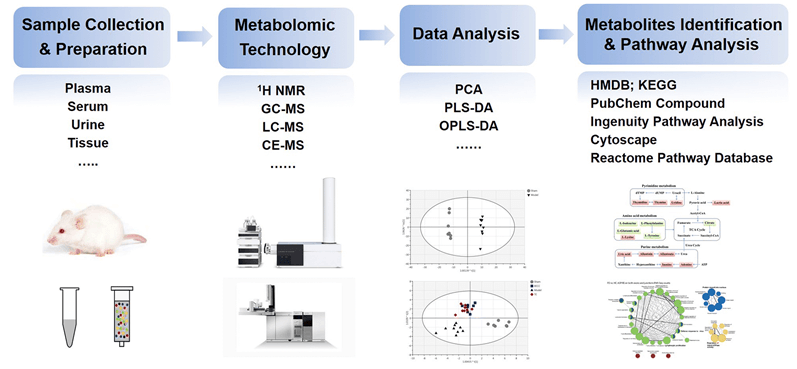Efficient evaluation of drug candidate toxicity
The toxicity of drug candidates is an important factor in the success of drug development, and the early elimination of excessively toxic drugs improves the efficiency of drug development.

The toxicity of drug candidates is an important factor in the success of drug development, and the early elimination of excessively toxic drugs improves the efficiency of drug development.

The toxicity of drug candidates is an important factor for successful drug development, and the early elimination of excessively toxic drugs improves the efficiency of drug development.
Metabolomics can perform dynamic qualitative and quantitative analysis of small molecule metabolites in organisms, analyze the relative relationship between metabolites and related physiopathological changes, and discover abnormal metabolic changes caused by drug action, so as to obtain information about the mechanism of toxic drug action. The previous efficacy tests or toxicity tests only focus on the functional changes or toxic reactions of a certain tissue or a specific organ, and sometimes it is difficult to discover the toxic side effects of certain aspects of drugs. In contrast, metabolomics studies the overall metabolic changes of an organism. The advantage of metabolomics is that it can comprehensively reflect the metabolic changes in various tissues of the organism caused by the drug's action, and comprehensively reflect the toxic side effects of the drug.
Creative Proteomics provides metabolomics solutions for drug toxicity assessment, providing a reliable basis for preclinical toxicity and safety evaluation of new drugs.
 The flowchart of typical metabolomic analysis (Duan et al., 2018)
The flowchart of typical metabolomic analysis (Duan et al., 2018)
The liver is the main site of biotransformation and detoxification, and is one of the susceptible target organs for toxic damage. The changes of metabolic profiles of liver tissue, liver tissue extracts, plasma and urine before and after comparing drug effects are specifically compared to provide a comprehensive response to the metabolic status of the organism. With specific data processing models and algorithmic classifiers (e.g., support vector machines), toxic markers can be screened in a short period of time, providing more comprehensive information for drug hepatotoxicity evaluation.
The kidney is not only the main organ for excreting drugs, but also an important target organ for drug toxicity. Metabolomics can identify the toxicity in the complex by metabolites or evaluate the drug toxicity as early as possible according to the risk of toxic drugs.
Heart, etc.
If you would like to learn more, please contact us and we look forward to working with you.
Reference

Explore the future of metabolomics with Creative Proteomics. Discover cutting-edge solutions for metabolic analysis and research.
Copyright © 2026 Creative Proteomics. All rights reserved.